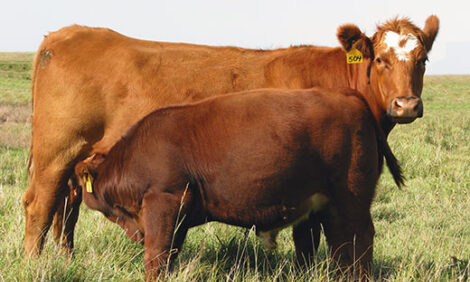



McDonald's investigates onions, beef patties after E. coli outbreak
The outbreak has sickened nearly 50 peopleUS fast-food chains were pulling fresh onions out of their menu items on Thursday after the vegetable was named as the likely source of an E. coli outbreak at McDonald's restaurants that has sickened 49 people and killed one, reported Reuters.
Restaurant Brands International, parent of McDonald's rival Burger King, and Yum Brands said they were removing fresh onions from menu items. Roughly 5% of Burger King locations have removed onions from the menu, a Burger King spokesperson said in a statement.
McDonald's said on Thursday that Taylor Farms was the supplier of the sliced onions that have been removed. Taylor Farms did not immediately respond to a request for comment. The company has recalled several batches of yellow onions produced in a Colorado facility, according to a recall memo on Wednesday by US Foods, one of the largest US suppliers of food service operations.
About 5% of Burger King stores also get supplies from Taylor Farms, but a company spokesperson said Burger King has not been contacted yet from health authorities or had any illnesses. Yum, which operates KFC, Pizza Hut and the Taco Bell chains, said it was removing onions "out of an abundance of caution."
The US Department of Agriculture said late on Wednesday that fresh onions were the likely source of the outbreak. The US Food and Drug Administration said it is looking at all possible sources of the outbreak and has not determined the cause.
Past E. coli outbreaks have hampered sales at big fast-food restaurants as customers avoid the affected chains for fear of illness. Regulators are still investigating whether McDonald's beef patties could be affected, but E. coli is killed in beef when cooked properly, whereas the McDonald's Quarter Pounder is served with raw, slivered onions.
McDonald's has pulled the Quarter Pounder from about one-fifth of its US restaurants, including in Colorado, Kansas, Utah and Wyoming, and in parts of Idaho, Iowa, Missouri, Montana, Nebraska, Nevada, New Mexico and Oklahoma.
"We've been told by corporate to not use any onions going forward for the foreseeable future," Maria Gonzales, the on-duty manager inside a Burger King in Longmont, Colorado, said on Wednesday. "They're off our menu."
McDonald's did not immediately respond to a request for comment on Thursday.
McDonald's has moved quickly to try to contain the damage while also trying to reassure customers of its efforts. That may be critical - previous outbreaks in 2015 at Chipotle Mexican Grill and in 1993 at Jack in the Box caused sales at those companies to drop sharply for several quarters.
David Tarantino, an analyst at Baird Equity Research, downgraded McDonald's shares to "neutral" late on Wednesday. "We are concerned that reports of an E. coli outbreak linked to McDonald's restaurants in multiple US states could pose a major threat to consumer sentiment" and thus hurt US comparable-store sales, he said.
Plenty of customers
In the immediate aftermath of the McDonald's outbreak, plenty of people in Colorado were still eating at the US giant, according to checks by Reuters. Some were avoiding the hamburgers.
Charity Atkinson was munching on a 20-piece box of Chicken McNuggets in a McDonald's parking lot in Longmont on Wednesday afternoon, about 30 miles (48 km) north of Denver.
Atkinson said she was not worried about the outbreak, but she did note that for now she was avoiding the burgers.
"I'm hoping everything gets taken care of really soon, because my mom loves the Quarter Pounders with cheese," Atkinson said. "Hopefully they'll have better sanitary protections soon."
At Burger King, Monica and Jesus Martinez were digging in to a bag of burgers and fries while sitting inside their car, and said they had decided to frequent Burger King in large part because of the outbreak at McDonald's.
"I'm worried! I like the Quarter Pounder but I'm really worried," Monica Martinez said. "It will definitely influence my choices of where we eat going forward."
The outbreak of E. coli was first reported to the US Centers for Disease Control and Prevention in late September.
The USDA on Wednesday said that one of its state partners was also testing samples of beef for E. coli.



